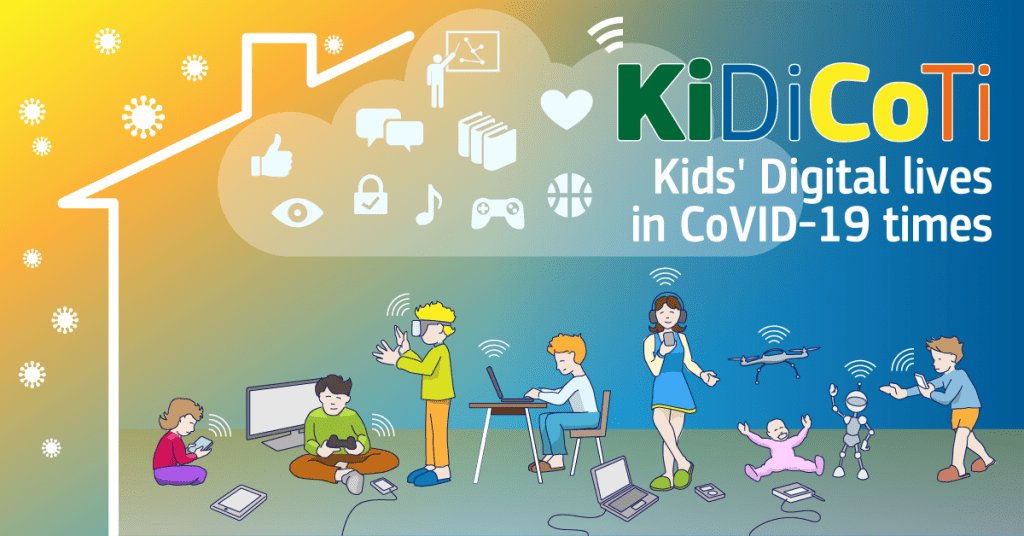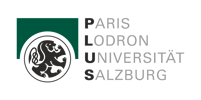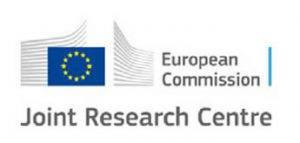German Version
Kids Digital Lives in Covid-19 Times

Reports are published here on an ongoing basis:
Austria reports – on specific topics and summary (National Reports)
EU reports (cross national) – on specific topics and summary
How families handled emergency remote schooling during the time of Covid lockdown in spring 2020
How children (10-18) experienced online risks during the Covid-19 lockdown – Spring 2020: Key findings (15.02.2021)
Emergency remote schooling during COVID-19 (1.12.2021)
(last update:December 3rd, 2021)
Kids Digital Lives in Covid-19 Times is a joint research project that is coordinated by the Joint Research Center of the European Commission and in which 16 countries are participating.
For Austria, Sascha Trültzsch-Wijnen is participating in the international study. The cooperation partner is the Center of Competences Media Pedagogy and E-Learning at the University of Education Stefan Zweig Salzburg (Prof. Christine Trültzsch-Wijnen). Together they are carrying out the national Austrian study, which is financed by the Federal Ministry of Education, Science and Research.
The unexpected spread of the CoVID-19 virus requires drastic measures (exit restrictions, quarantine regulations, etc.) in all European countries. School, learning, leisure activities and social contacts are mostly carried out via digital media and adolescents are much more concerned with digital media and media content than before. Previous studies have shown that increased use of digital media can lead to both higher risks and higher opportunities for adolescents.
In order to quickly identify the effects of the current Covid-19 crisis on families, to minimize risks and to promote the positive effects of this unexpected crisis and also to be able to use them for future developments, internationally comparable data must be collected quickly in Europe. The Joint Research Center of the European Commission is therefore carrying out an international representative study to examine the effects of the CoVID-19 crisis on the use of digital technologies in families. In a further step, this is supplemented by qualitative guided interviews with families. The national partial study is carried out by the University of Salzburg in cooperation with the PH Salzburg Stefan Zweig and financed by the Federal Ministry of Education, Science and Research.
- How do children and young people in different age groups engage with digital technologies during this specific time? (reported facts: behaviour, practices, skills)
- How did the lock-down disrupt or change the childrens’ and family’s behaviour and activities related to technologies? (reported facts: behaviour, practices, skills)
- What are the children and parent’s attitudes towards digital technology use and online activities during the lock-down?
- How did the lock-down disrupt or change the childrens’ and family’s attitudes towards digital technology and online activities?
- How do parents perceive the associated risks and opportunities? (including the impacts on well being)
- What impact for the future? (lessons learned, what would you/your child keep, what would you/ your child leave)
- qualitative sub-study (11 countries)
- Guided interviews with 10 families (parents and children between 6 and 12),
- Pre-Interview Questionaire Parents,
- Time-Capsule Self Report Children
- quantitative sub-study Representative survey in 11 European countries (AT, FR, DE, IR, IT, NO, PT, RO, SI, ES, CH)
- Telephone interviews with parents and children (AT: N=510)
Based on the results of this study (combination of qualitative and quantitative results), recommendations are formulated for various stakeholders in Austria (ministries, universities of education, schools, employers, interest groups, etc.), whereby the focus is on the following questions:
- Which digital skills do parents and children need to be able to use the opportunities of digital technologies in the current Covid-19 crisis situation?
- Which digital skills do parents and children need in order to be better prepared for future (similar) crisis situations?
- How can families be better supported in the current crisis situation (distance learning for children, leisure activities for children, agreement of professional and school obligations in the home office / distance learning)?
- How can Austrian families be given the best possible support with regard to the expansion of e-learning, even after the current crisis, in order to be better prepared in future crisis situations?
- How can children and young people be better prepared for e-learning and distance learning in the future?
- How can parents and legal guardians be better prepared for e-learning and distance learning in the future?
- How can schools be supported in the development of e-learning and scenarios for distance learning in order to be better prepared in future crises?
- What positive experiences can be made with e-learning / distance learning in the current crisis situation and how can these be used for future teaching at Austrian schools?
- How can children and adolescents be supported in the leisure-oriented use of digital media in times of restricted access (dealing with opportunities and risks)?
- What offers for the leisure-oriented use of digital media can be developed to better support children, young people and their families in similar crisis situations in the future?
- How can parents and guardians be better prepared for more intensive leisure-oriented media use of their children in crisis situations in the future?
- How can parents and legal guardians be better prepared in the future for the agreement of home office, distance learning and leisure activities in a confined space?
- What support do parents and legal guardians need in order to be able to cope better with similar crises in the future?
Project Page at Joint Research Centre European Commission
Project Pages Team Ireland (ABC at DCU Dublin)
Project Pages Team Norway (NTNU Trondheim)
Project Page Team Switzerland (ZHAW Zürich)
other to be added later
This study has been funded by the Austrian Federal Ministry of Education, Science and Research
The Joint Research Center of the European Commission is cordinating the project






